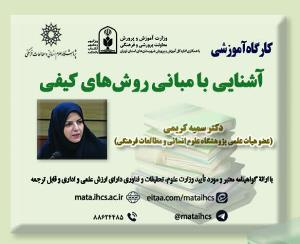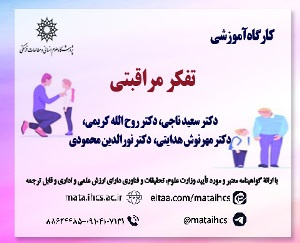ارزیابی برهان حفظ شریعت در اثبات عصمت امامان از منظر متکلمین شیعه (مقاله علمی وزارت علوم)
درجه علمی: نشریه علمی (وزارت علوم)
آرشیو
چکیده
برهان حفظ شریعت با تقریرهای سه گانه اش یکی از دلیل های عقلی است که متکلمان شیعه از قدیم الایام برای اثبات عصمت و خطاناپذیری امامان از آن بهره جسته اند. در مورد این برهان اشکالات متعددی مطرح شده که مهم ترین آنها، که در این سیاهه به آن پرداخته می شود، به چگونگی حفظ شریعت در دوران غیبت حضرت مهدی بازمی گردد. نگارنده با استفاده از روش توصیفی-تحلیلی، پس از طرح این برهان و تنقیح اشکال، جواب هایی را می آورد که به این اشکال داده شده است. این جواب ها عبارت اند از وجوب ظهور امام در صورت انسداد راه علم، هدایتگری امام به طور غیرمتعارف، برطرف شدن نیاز جامعه به تشریع توسط فقها، و عدم لزوم حفاظت فعلی از شریعت توسط امام. سپس این جواب ها نقد و بررسی می شود. پس از اثبات استواری و استحکام این اشکال و همچنین فراگیری آن نسبت به شرایع سابق، نگارنده اتخاذ دو مبنا را پیشنهاد داده است. نخست، عدم امکان اثبات عصمت انبیاء و اوصیاء از طریق این برهان و در عین حال امکان اعتقاد به عصمت ایشان از جهت مصداقی؛ دوم ضرورت عصمت مگر در مواردی که مصلحت اقتضا کند که البته نتیجه هر دو مبنا با آنچه متکلمان از اثبات عصمت برای پیامبران و جانشینانشان انتظار دارند ناسازگار است.Evaluating the Demonstration of Preservation of Sharia in Proving Imams' Infallibility from the Point of View of Shia Theologians
The demonstration of preserving Sharia with its three accounts is one of the intellectual reasons that Shia theologians have used since the Islamic medieval centuries to prove the infallibility of Imams. Several objections have been raised regarding this argument, the most important of which discussed in this paper, is related to how Sharia is preserved during the absence of Imam Mahdi. Using the analytical-descriptive method, this objection and its responses are explained. These responses include: the necessity of the appearance of Imam Mahdi in case the path of knowledge is blocked, the guidance of the Imam in an unconventional way, supplying the society's needs for Sharia by the jurists, and lack of the necessity of actual preservation of the Sharia by the Imam. All these responses are evaluated and criticized and finally, it is shown that the objection is still strong and also applicable to previous religious laws. In the last part of the paper, two solutions are proposed: (1) Although this demonstration cannot prove the infallibility of prophets and Imams, one can still believe in their infallibility regarding the instances; (2) Infallibility is necessary except in cases of expediency. Nevertheless, the result of both solutions is incompatible with what theologians expect from the demonstrations of infallibility for the prophets and their successors.







